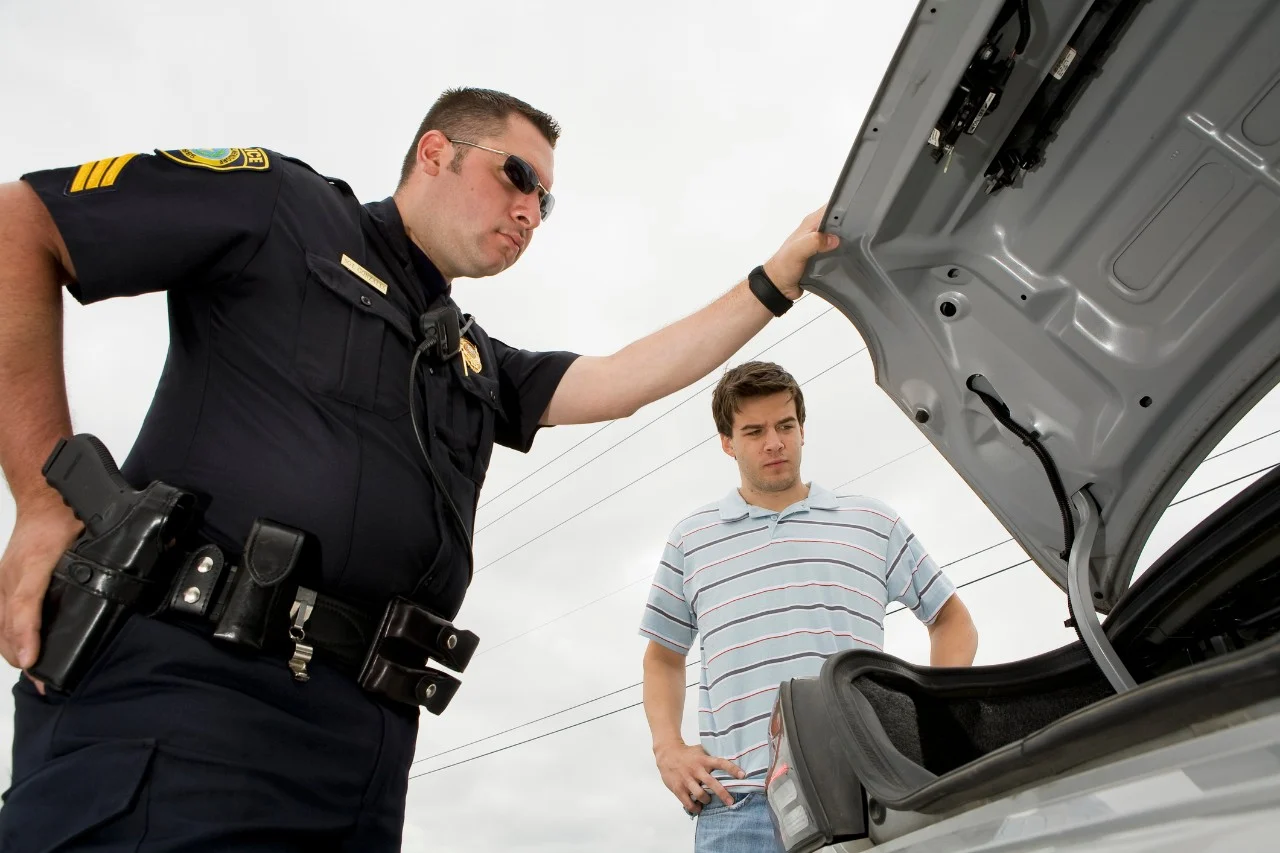You want to preserve your legal rights, but will you face legal trouble if you say no?
You are pulled over by police. You think it is because you are speeding, but then the police officer asks to search your vehicle. You are not hiding anything, but should you let them?
If a police officer asks to search your car, make sure you understand your legal rights. The Fourth Amendment of the U.S. Constitution protects against unreasonable searches and seizures. This applies to searches of vehicles as well.
If the police ask to search your vehicle, you can say “I have the right to say no, and I’m exercising that right.” If you refuse to consent to a search of your vehicle, technically there is nothing the police can legally do about it. You have the right to refuse a search, so you cannot be arrested. Police may still try to search your vehicle anyway, though. If that happens, do not lose your cool, as that will only make matters worse. Instead, repeat yourself, insisting that you do not give them consent. There will likely be a police camera recording your every move, so there will be evidence of your refusal to give consent, should it be needed in court.
If you are arrested and put in jail, be sure to contact a lawyer right away. If you are questioned by police, remain silent. Let them know that you are not answering any questions without a lawyer present.
If you have not been arrested but police are still questioning you for no reason, ask permission to leave. You can ask them “Am I free to go? I would really like to get on my way.” There should not be any reason why police would need to delay you if they have no proof of a crime. However, you should ask for permission to leave. If they allow you to leave, then do so. If not, then refuse to answer their questions and call a lawyer.
Exceptions to the Rule
There are some situations in which police can still search your vehicle, even if you do not consent to it.
- A search warrant. Police have the right to search your car if they have a search warrant.
- Search incident to arrest. Police have the right to search the car for evidence of what they arrested you for.
- Plain view. If you have something in your car that is in plain sight, police can search your vehicle for evidence of a potential crime.
- Probable cause. The police can search your car if they have probable cause, or evidence, that you committed a crime. Some examples may include the smell of marijuana in your car or a muffled voice coming from the trunk.
Contact Our Criminal Defense Lawyers Today
As a Texas citizen, you have legal rights, and those rights include refusing to consent to illegal search and seizure. If you are arrested or otherwise punished by police for not consenting to a search of your vehicle, seek legal help right away.
If a search occurred without a warrant or probable cause, seek legal help from the Austin criminal defense lawyers at Granger and Mueller PC. We will help protect your legal rights and pursue resolution. Fill out the online form or call (512) 474-9999 to schedule a consultation.

